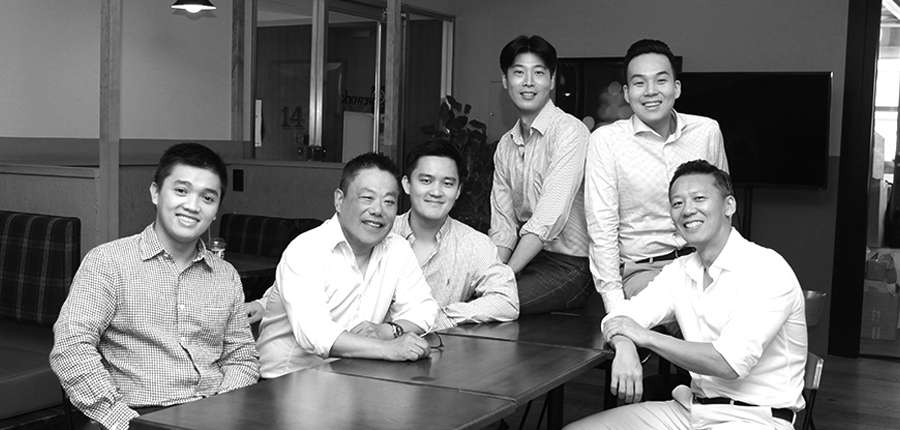Founded in 2017, Access Ventures is an early-stage venture capital firm focusing on technology companies in Vietnam, Indonesia, and South Korea. In Vietnam, Access Ventures has already garnered an impressive portfolio that includes notable startups such as Abivin (winner of the Startup World Cup in 2019), bus ticketing platform Vexere, and Moca (a payment platform acquired by Grab in Vietnam in 2018).
General and founding partner Charles Rim was previously the head of M&A in the APAC region (excluding China) for Google from 2006 to 2011. He also served as director of strategy and corporate development at Yahoo Korea.
KrASIA caught up with Rim to talk about how startups can weather COVID-19 and whether Vietnam’s tech startups will remain attractive to foreign investors in the near future.

KrASIA (Kr): This is a very difficult time for startups. What advice do you have for startup founders within your portfolio?
Charles Rim (CR): This crisis has created a learning opportunity for most startup founders. Since the global financial crisis in 2008, this is the first time that there’s a significant downturn. I think it can help founders stay focused.
The main advice, of course, is to preserve cash, which is one of the few things completely within the control of startup founders. Look at your resources and make some hard decisions. Funding will certainly become more difficult for at least a few quarters. One of the metrics, once funding reappears, will be how a startup’s management is handling or handled this crisis period.
Certain companies that recently acquired funding or that have runway for more than a year certainly have more flexibility. In the case of companies that have less than a year of runway, we have to assume that [revenue from] a couple quarters are lost due to this crisis, so you have to take more severe measures to maintain cash, like pay cuts or reduction of staff.
As we are in the depth of the current crisis, I think startups should focus less on funding and more on execution and cost savings. This is a great time to consider significant strategic shifts, which would be harder to consider in better times. If you must raise funds in this environment, then investors will be more inclined to take risks with companies that can operate lean and secure sufficient cash runways. Startups should focus their analyses on business ROI in everything they do. Ask what you are getting for your spend and how you can measure that.
Kr: Access Ventures focuses on early-stage startups that have strong exit profiles. How will the COVID-19 crisis impact this investment approach in the future?
CR: We want to invest in companies with strong underlying value, which often has to do with their technology. That underlying value does not always have to be in the startup’s ability to generate revenues and profits. The value can be in its ability to create products.
For example, Moca, one of our portfolio companies in Vietnam, was acquired by Grab in less than two years. Moca has founders with very strong tech experience from Microsoft and Google. Grab decided to acquire Moca even though its original network of merchants and clients was quite small in Vietnam. It was because of its strong mobile tech platform and its ability to integrate and work with other banks.
I don’t think our criteria will change because of the crisis, but the crisis will give us many interesting data points about founders and how they operate. Also, it will tell us a lot about how susceptible some of these startup models are to crises. Still, we have always been focused on solid leaders with strong visions, but who are humble enough to admit mistakes and make adjustments. We are in the final stages of closing on several deals we committed to earlier in the quarter, and are actually about to commit to one more deal. We are definitely becoming more cautious, but at the same time, we are long-term investors.
Certainly, there’s also the issue with investing in strong technology companies that may be slower in generating revenues because they have to spend more time and resources to build their tech. You have to be more patient as an investor. We are not SoftBank, so we cannot singlehandedly make companies survive. It’s important for us to have other investors who can see the same values.
Kr: Vietnam, one of your core markets, received a lot of attention last year. The country is considered the rising star of Southeast Asia‘s digital economy, a growth market for investors seeking a wave after Indonesia. Do you think COVID-19 will slow down Vietnam’s momentum?
CR: The COVID-19 crisis has wiped out consumer demand. Every sector will be impacted differently, but eventually we will see a flood back to products and services. There will be significant pent-up demand to serve. In addition, the COVID-19 situation has definitely advanced the status of tech and the digital economy. There will be clear sectors that benefit from this situation, such as e-sports, digital commerce, education, and healthcare. As this crisis identifies major weaknesses in healthcare systems globally, more opportunities will be apparent. Consumers will move online not just for e-commerce, but also for essential services such as healthcare and education.
The good thing about the VC environment is that venture capital money is not subject to withdrawal by investors. When the crisis ends, VCs will take into account country risks—how did the government handle this crisis? I believe that once this pandemic is behind us, and as the Vietnamese government has been able to handle it quite properly, the country will look just as attractive as before.
The interview has been edited for clarity and length.

